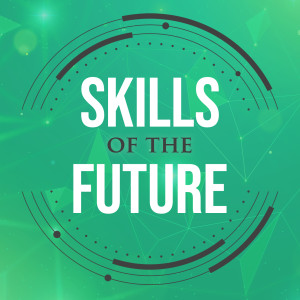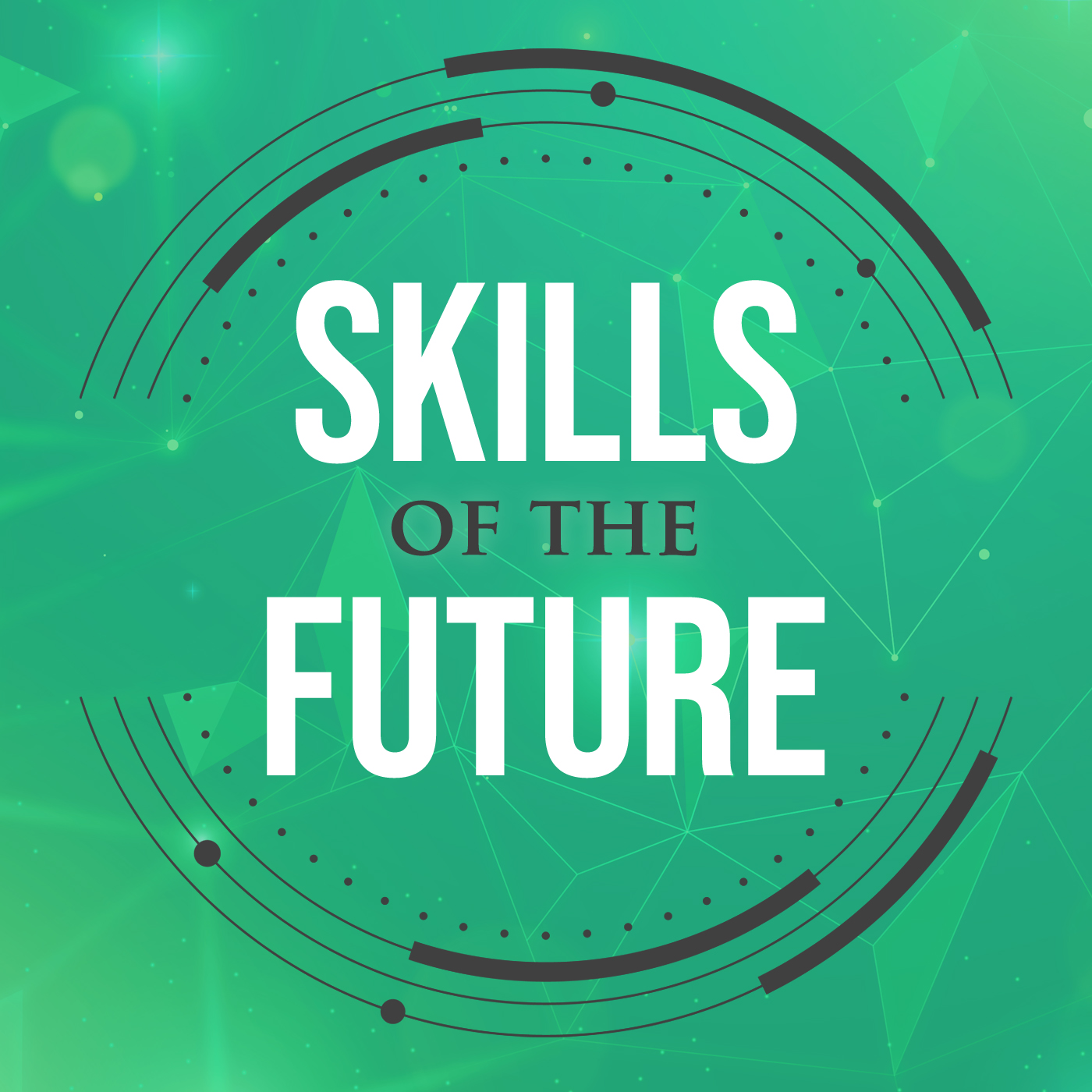Episodes

Wednesday Apr 13, 2022
Empathy and Leaders - with Kara Dogali
Wednesday Apr 13, 2022
Wednesday Apr 13, 2022
In this episode, Andrea Butler interviews Kara Dogali about developing empathy in leaders.
The key takeaway from this episode:
- Empathy is obviously a critical skill for leaders to have. The challenge is that empathy is an exceptionally hard skill to develop. You can’t just take a class and have it the next day. It’s something that you really need to work on, which can be particularly challenging today with all the external stressors going on.
- One way to work on developing empathy is to focus on developing the more specific subskills, like active listening, communication, and curiosity. It’s important to take the time and put in the effort to really get to know your people.

Tuesday Apr 05, 2022
Communication in a Post Pandemic World - with Marissa Evans
Tuesday Apr 05, 2022
Tuesday Apr 05, 2022
In this episode, Andrea Butler interviews Marissa Evans about improving communication skills.
The key takeaway from this episode:
- Communication is an essential competency. Strong communication can help solve most problems.
- During the pandemic, we were all forced to become adept at digital communication. We have all gotten so good at digital communication, that it might be a bit of a learning curve when we return to in-person face-to-face communication.
- One aspect of communication that is important is the ability to be succinct, but still complete. Our messaging needs to be efficient. How can we say more with less?

Wednesday Mar 30, 2022
Reducing Unconscious Bias - with Brandi Moncrief
Wednesday Mar 30, 2022
Wednesday Mar 30, 2022
In this episode, Andrea Butler interviews Brandi Moncrief about reducing unconscious bias.
The key takeaway from this episode:
-
Many people in organizations still think that they do not have any bias at all. This is particularly problematic when making high-stakes decisions, like hiring. People need to be willing to challenge their own thoughts and biases in order to make better and fairer decisions.
-
To reduce bias, we need to go beyond quick training. Training is important and can help, but often training is a quick module and people don’t walk away with anything useful. There is a need to incorporate more real-life experiences and real-life conversations.
-
Inclusive leadership is critical right now. One of the main skills of an inclusive leader is curiosity – asking questions and challenging your own thoughts and decisions. Inclusive leaders create more inclusive rooms and workplaces in general.

Wednesday Mar 23, 2022
Employee Recognition, Employee Engagement, and Retention - with Hannah Yardley
Wednesday Mar 23, 2022
Wednesday Mar 23, 2022
In this episode, Dan van der Werf interviews Hannah Yardley about employee recognition, employee engagement, and retention.
The key takeaways from this episode:
-
Research into the differences between why employees are leaving versus why they are staying has yielded some interesting results. Compensation and benefits are one of the main reasons people consider leaving but are not strong drivers for reasons to stay. Work-life balance and recognition are stronger drivers for why employees stay.
-
When considering total rewards, non-financial rewards are often ignored which is a missed opportunity. Employee recognition is one of the most effective non-financial rewards.
-
The best type of recognition is well-defined, frequent, specific, timely, values-based, and public. Creating a recognition program can be a great way to add structure and buy-in to rewarding and recognizing employees.

Tuesday Mar 01, 2022
Applying Skills and Competencies to the Talent Lifecycle - with Suzanne Knight
Tuesday Mar 01, 2022
Tuesday Mar 01, 2022
In this episode, Dan van der Werf interviews Suzanne Knight about applying skills and competencies to the talent lifecycle.
The key takeaway from this episode:
-
In many organizations, there is a need for workforce planning connected to business strategy to figure out what skill sets are needed to accomplish future goals. Shift from filling positions you need today, based on outdated organizational charts, and look to the future to see where the organization is going.
-
‘T-shaped skills’ can be used to describe deep knowledge in one area, and a broad base of supporting knowledge and skills in other areas. People with these T-shaped skills tend to be strong collaborators who can work cross-functionally. They have the knowledge to relate to others who are outside of their area of expertise. This facilitates an adaptive organization and builds a strong understanding across streams or silos.
-
When onboarding new employees, it’s important to be thoughtful about how to create space for new hires to listen and learn without feeling pressure to perform and make an impact right away. Encourage people to take the first month to have a bunch of onboarding meetings with people in various areas to absorb as much as they can about the business.

Tuesday Mar 01, 2022
Tuesday Mar 01, 2022
In this episode, Andrea Butler interviews Jelena Radecki about applying skills and competencies to hiring and onboarding.
Four competencies that are important right now to look for and grow in people include:
- Emotional Intelligence – the ability to identify, understand, and anticipate emotions, concerns, and thoughts of others.
- Agility – the ability to learn quickly and flexibly, especially in today’s world of work where skillsets are quickly shifting.
- Creative Problem Solving – the ability to be flexible and to use different problem-solving strategies and searching for competing alternatives before making any decision.
- Collaborating – the ability to drive innovation and solve hard problems by communicating with others and bringing multiple views points to the table.

Wednesday Feb 23, 2022
Reducing Unconscious Bias - with Cassanda de Iongh
Wednesday Feb 23, 2022
Wednesday Feb 23, 2022
In this episode, Andrea Butler interviews Cassandra de Iongh about reducing unconscious bias.
The key takeaway from this episode:
-
We need to be intentional about reducing unconscious bias. Sometimes we exclude more when we are trying to be inclusive. It’s important to create a safe space where people feel comfortable having difficult conversations.
-
When reducing bias from the hiring process, consider:
-
Using free tools online to remove biased language from job ads.
-
Limiting the number of job requirements to the “must-haves” rather than a laundry list of “nice to have.”
-
Training hiring managers on interview practices that reduce bias.
-

Wednesday Feb 16, 2022
Applying Skills and Competencies to Hiring and Onboarding - with Cerys Cook
Wednesday Feb 16, 2022
Wednesday Feb 16, 2022
In this episode, Dan van der Werf interviews Cerys Cook about applying skills and competencies to hiring and onboarding.
The key takeaway from this episode:
-
Two competencies that are critical for most roles right now are growth mindset and emotional intelligence skills, particularly self-awareness and empathy.
-
Roles evolve, and so do the expectations of them. As a result, it’s important to restructure and redefine roles to clearly articulate the role requirements and outcomes. This takes time to do upfront, but is so worth it in the end, because you can use them for a variety of talent applications, including hiring and onboarding.
-
A full onboarding process should have a 30-day, 60-day, and 90-day plan that is directly linked to the requirements for the role. Onboarding is key to setting people up for success and retaining them!

Wednesday Feb 09, 2022
Employee Engagement and Building Internal Talent - with Anja Gorrie
Wednesday Feb 09, 2022
Wednesday Feb 09, 2022
In this episode, Dan van der Werf interviews Anja Gorrie about employee engagement and building internal talent.
The key takeaways from this episode:
- It’s important to consider how external changes and external shifts (e.g., globalization, digitization, and remote work) impact employee engagement.
- To build employee engagement it is critical to act and do something with what you hear from employees. It’s not enough to just listen to employees, you need to hear what they are saying and do something about it.
- To help employees to learn, grow, and develop their careers, it’s important to create a learning environment where you:
- Teach people things in real-time and provide real-time feedback.
- Implement methods to track personal and team goals.
- Use an LMS for a scalable solution.
- leverage a mentoring or coaching program.
- Provide recognition and rewards.

Wednesday Feb 02, 2022
Applying Skills and Competencies to Performance Management - with Crystal Rizzuto
Wednesday Feb 02, 2022
Wednesday Feb 02, 2022
In this episode, Dan van der Werf interviews Crystal Rizzuto about applying skills and competencies to performance management.
The key takeaway from this episode:
- We have all been through a traumatic experience because of the pandemic. As a leader, it’s important to be mentally checked in with yourself so that you can provide a safe space for your employees to come to you and be able to provide resources to support them. It’s about emotional intelligence and being able to read people’s moods and have those check-ins with your people.
- We need to ditch the annual performance review for more frequent less formal performance check-ins. Having these regular one-on-one check-ins can also help to retain your talent.

